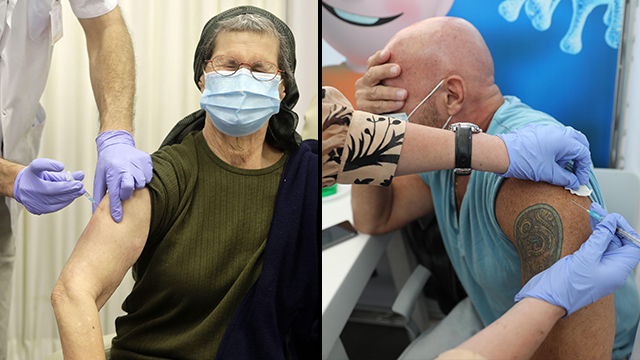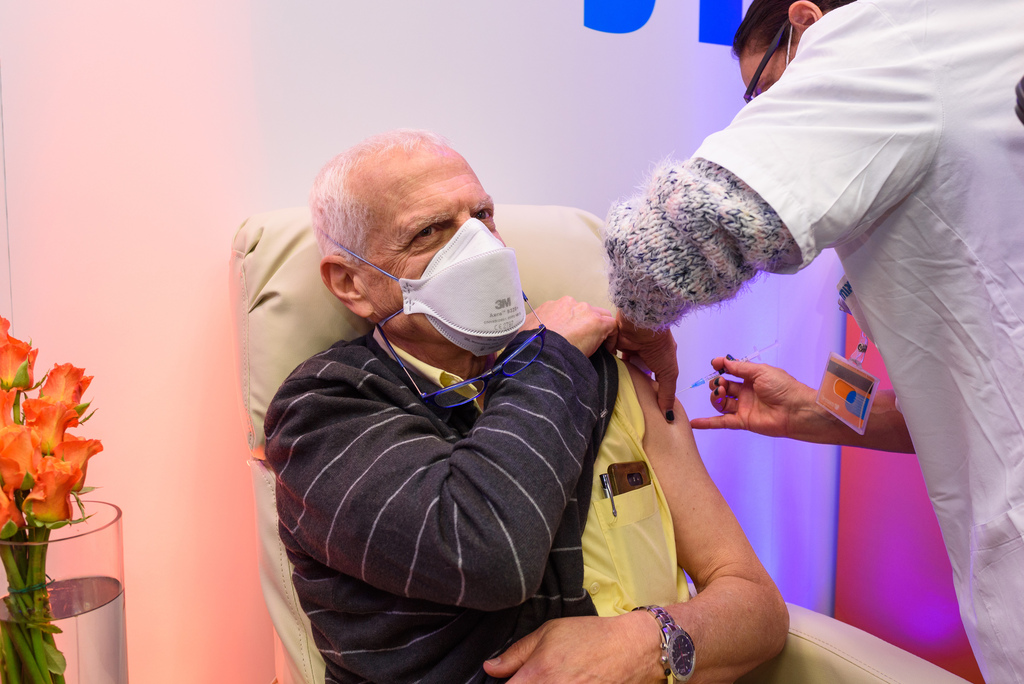Britain and the U.S. are just two of the countries currently experiencing a colossal coronavirus disaster.
Britain has more hospitalizations than at the peak of the pandemic in March-April and in the U.S., over 125,000 people are hospitalized with COVID-19. Both countries have lost control of the spread of the disease.
Against the backdrop of this medical emergency - which may result in hospitals being unable to provide adequate care to patients suffering from heart conditions, cancer and fatal diseases far more dangerous than COVID-19 – some voices in these countries raised a very controversial proposal: extending the suggested three-week interval between the vaccine's two doses or skipping the second dose outright.
3 View gallery


Israelis getting vaccinated against COVID-19 in Jerusalem, left, and Tel Aviv
(Photos: EPA, AP)
This offer entails extensive risks. First and foremost – this proposal has not been proven to be safe and effective in clinical trials, which could make it harder for the public to get on board with getting the shot.
Virologists and immunologists fear that administering just one shot of COVID vaccine would provide only partial protection against the pathogen.
According to Pfizer's official trial results, one dose of the vaccine provides only 52% protection against coronavirus over a period of 10 days to three weeks.
Later examinations have shown that these numbers may climb further but could not prove it with full certainty. Partial public immunity could also bolster selective evolutionary pressures on the virus that would lead to the emergence of new variants capable of bypassing the vaccine.
So why do the British and the Americans even entertain the thought of implementing such a policy? Because they are in dire straits.
One of the key figures in the White House Coronavirus Task Force, Dr. Anthony Fauci, already said he will not agree to the one-dose policy for the same reasons listed above, even despite the sharp spike in cases in the U.S.
This proposal poses a great risk to public confidence in the vaccine. The people must know that the procedure is not affected by any political considerations or sophisticated manipulation of raw data.
The public should have as much certainty as possible in this vaccine which got emergency approval from the U.S. Food and Drug Administration (FDA).
That is why Health Ministry Deputy Director-General Prof. Itamar Grotto's suggestion to consider the one-dose policy is so dangerous. Not only because of the medical considerations, which I leave to the experts (whose opinions are quite clear). The main problem is public trust.
The people need confidence in the safety and efficacy of the vaccine before they go and get it. It is unacceptable that people who have received the first dose, expecting a second one, would now hear that the Health Ministry – and not Pfizer – is ready to change policy, only contributing to the sense of distrust.
Under no circumstances should Israel find itself in such a state of desperation like Europe and the U.S., whether that means tightening social distancing rules or continuing to inoculate high-risk groups at breakneck pace.
The government and the Health Ministry must show consistency and focus on these great challenges, and not play risky games stemming from feelings of emergency and desperation abroad.



